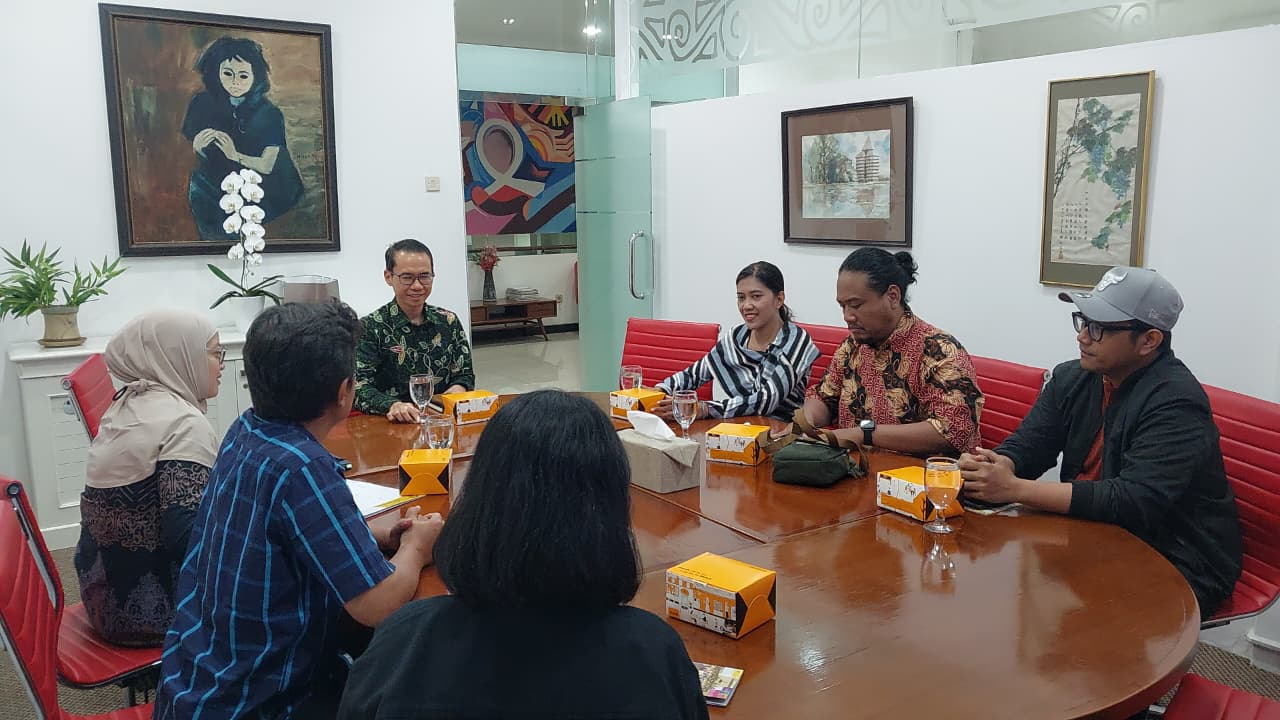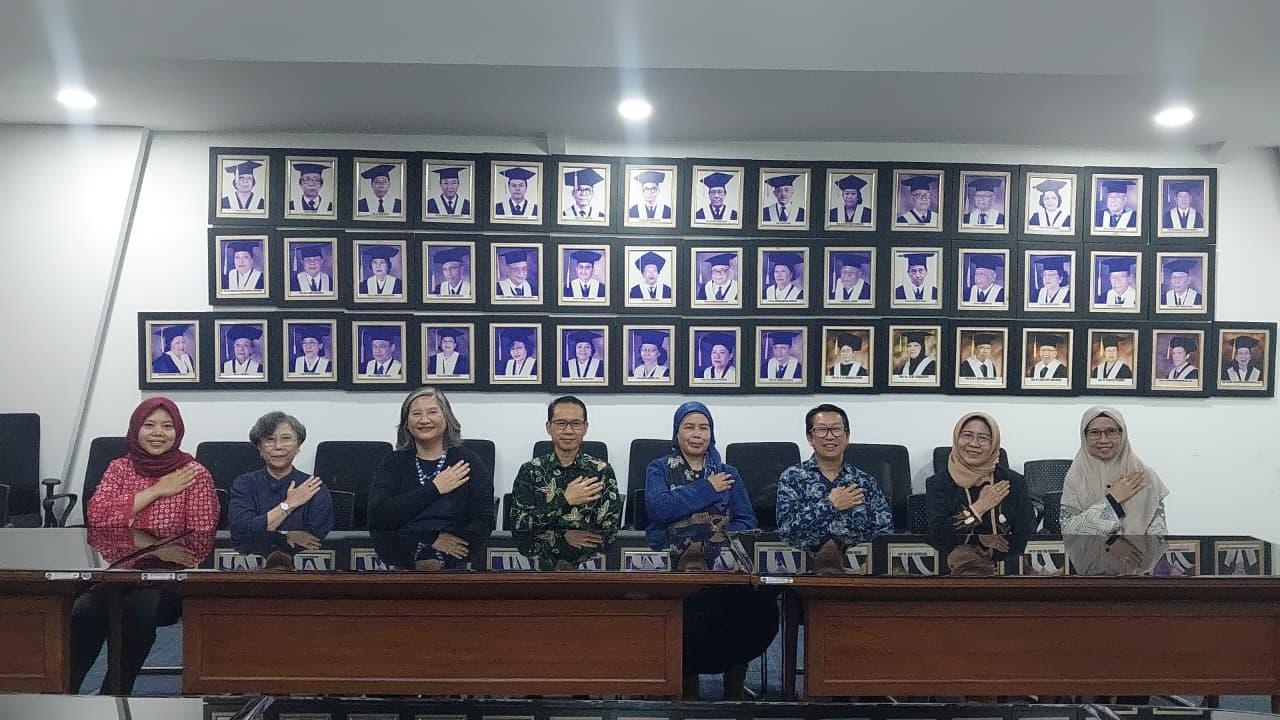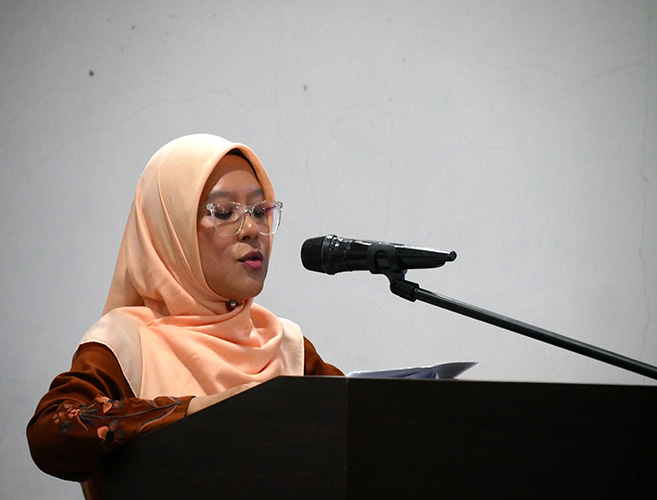The Department of Library and Information Science, Faculty of Humanities, and the Faculty of Computer Science, Universitas Indonesia, successfully hosted the 31st International Conference on Collaboration Technologies and Social Computing (CollabTech 2025) from November 4 to November 7, 2025, at the “Soe Hok Gie” Auditorium, “Sapardi Djoko Damono” Building, Faculty of Humanities. The four-day event brought together researchers, practitioners, and professionals from across the world to share insights on how collaboration technologies and social computing are transforming the way humans connect, learn, and innovate.
Under the central theme of “Humanities in Digital Collaboration,” the conference underscored the essential intersection between technology and human values. Participants explored how technological advancements can be designed and implemented to uphold inclusivity, ethics, and cultural sensitivity in the digital age.
In his opening remarks as the Program Chair, Prof. Harry Budi Santoso, Ph.D., Professor of Human–Computer Interaction Systems at the Faculty of Computer Science, Universitas Indonesia, expressed his appreciation and gratitude for the successful organization of CollabTech 2025, which is being held in Jakarta, Indonesia for the first time —an important milestone in the history of this international conference.
Prof. Harry also explained that out of the 50 scientific articles submitted for review, only 12 were accepted as full papers and eight as short papers. In addition, eight papers were presented in poster format. The selected papers published by Springer in the Lecture Notes in Computer Science (LNCS, volume 16204) further underscore the quality of the research presented by the researchers at this event.
The conference opened with an inspiring keynote speech by Dr. Ir. Erdefi Rakun, M.Sc., Director of the Machine Learning and Computer Vision Laboratory at the Faculty of Computer Science, Universitas Indonesia. In his presentation, “Integrating Different Branches of Computer Science to Develop Sign Language Translation Systems,” Dr. Rakun illustrated how interdisciplinary collaboration can drive social impact, especially by making technology more inclusive for individuals with hearing impairments. His research exemplifies the core spirit of CollabTech 2025: using innovation to enhance human interaction and communication across barriers.
Throughout the sessions, speakers and participants from Indonesia, Japan, Germany, and Spain exchanged ideas on a wide range of topics, such as social computing, team collaboration, organizational design, and AI-supported learning environments. The discussions also examined how machine learning and large language models are reshaping collaboration practices across academia, education, and public services.
CollabTech 2025 offered an engaging atmosphere that extended beyond academic discussions. Poster sessions provided young scholars with an opportunity to present their early research, while networking events fostered interdisciplinary collaboration among participants from Japan, Indonesia, and other countries.
The Faculty of Humanities also organized a Cultural Evening and Dinner, where participants experienced traditional Indonesian performances and cuisine—an event that beautifully reflected the theme of “humanities” within digital collaboration. The cultural program deepened mutual appreciation and understanding among the participants, bridging cultures through shared experiences.
As part of the closing agenda, participants joined a city tour of Taman Mini Indonesia Indah (TMII), exploring the cultural diversity of Indonesia through its traditional pavilions and museums. This experience enriched the conference by connecting the academic theme of “collaboration” to Indonesia’s living heritage of diversity and unity.
Dr. Tamara Adriani Salim, S.S., M.A., as the representative of General Chairs mentioned hosting CollabTech 2025 is regarded as an honor for Universitas Indonesia, as it affirms the institution’s commitment to fostering interdisciplinary and international collaboration. The event demonstrated the university’s dedication to advancing knowledge in the digital humanities and technology while encouraging research that remains grounded in social and ethical responsibility.
The conference concluded with the Best Paper Awards ceremony, honoring outstanding contributions that reflected rigorous research and strong practical relevance of the field. The participants departed with renewed enthusiasm for future collaborations and joint publications. As the 31st edition of the CollabTech series, this year’s event not only strengthened academic ties but also showcased Indonesia’s growing role as a hub for innovation and digital research in the Asia-Pacific region.
The official proceedings of CollabTech 2025 are free to download until December 12th from https://collabtech-indonesia.id/proceedings/, contributing to the ongoing global discourse on the future of collaboration technology and social computing.
The presence and participation of dozens of Student Volunteers from the Faculty of Humanities and the Faculty of Computer Science UI provided significant support for the smooth and high-quality execution of the event, while also leaving a positive impression on the participants. Their involvement reflects a high level of enthusiasm and commitment to academic and research-related activities. (CollabTech2025 Committee)




